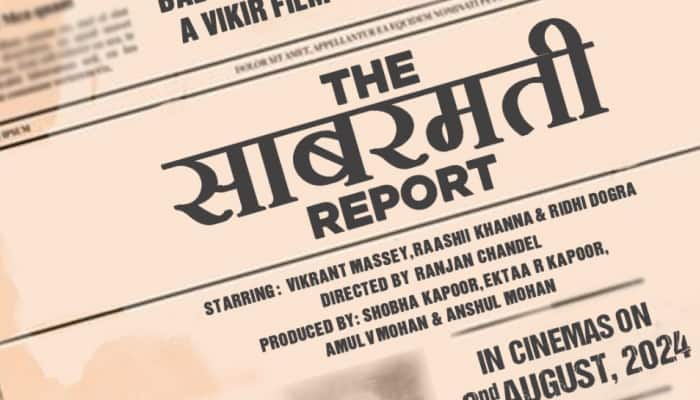SC ruling on Section 66A must be hailed but abuse on social media is not acceptable
Trending Photos
)
Supreme Court of India’s recent ruling on 2009 amendment to the IT Act, which curbed free speech on social media, as being in contravention of the spirit of the Indian Constitution is something that must be hailed and something that was unanimously cheered by all sections of society.
After all the notorious Section 66A had wide reaching implications and was used and abused by the authorities, the police and the political class in general. So if there was anything that those in positions of power found offensive, annoying, inconvenient, insulting or hateful amongst other things, chances were that the creator of the posts would end in jail.
And this is what exactly happened. Shaheen Dhada from Palghar was picked up by the police for commenting on Facebook about the bandh in Mumbai on the death of Shiv Sena supremo Bal Thackeray. Jadavpur University professor Ambikesh Mahapatra saw himself landing in police custody in West Bengal for making TMC chief Mamata Banerjee’s cartoon and posting them on social media.
AAP’s general secretary in Puducherry, Ravi Srinivasan, was picked up in October 2012 for tweeting on P Chidambaram’s son Karti. And very recently 22-year old Vicky Khan was arrested by the UP police in Rampur for posting something on social networking site which Samajwadi Party leader Azam Khan found offensive. The list is long.
The ruling NDA government welcomed the SC verdict, even though it defended the law in court which was made under UPA rule. The government’s argument was that while conventional media had certain checks, the social media had nothing of the sort and anything posted on it could go viral in minutes. However, Justice Rohinton Nariman and Justice J Chelameswar would have none of it and struck down a law which they said was vague and unconstitutional.
Thus, for all of us who uphold free speech and the tenets of democratic values and principles, the SC verdict is well intentioned. Having said that, I must say that I also have some reservations.
To start with, I totally disagree with trolling on social media and the abusive language that the some of the so-called 'trolls' think is their birthright to use, even if they are a fraction of all social media users. Not being a very net savvy person, I was not on Facebook, Twitter etc. and do not till date use any of the cross-platform mobile messaging apps. To be honest, I joined Twitter about one and a half years back only because as a journalist it gave me news and information.
But after joining it, I started enjoying it, as being an opinionated person and politically inclined, I used the platform to air my views. But in a responsible manner. It was also fun when my followers increased and my tweets led to debates, appreciation, counter tweets and re-tweets. Many a times I have had exchanges on politics or sports with an online friend or a stranger.
However, when I was abused on Twitter for the first time, it came as a rude shock to me. It was difficult to fathom that someone would call you a b**** because you have an opinion which they don’t like, or if their hero is not your hero. It’s almost preposterous to think that if someone does not like Kejriwal’s brand of politics, he or she should be abused for it - Or if someone critiques Modi’s work as the PM, he or she should be trolled - Or if someone feels that Dhoni did not do justice to Test cricket, that person should be bombarded with filthiest of language.
It simply is not acceptable. Defaming someone and spreading false information is also not acceptable. Also is not acceptable are tweets and Facebook posts which lead to fear and panic among people. For example, the incident of exodus of Northeastern people from South India some years back because of what was being circulated on social media.
Thus, while SC’s verdict on Section 66A is the right thing, people on social media need to be more responsible and thank themselves that they are born in a country like India where you have freedom of speech and expression.
But freedom of speech also has its limits. It does not mean hurting other people’s sentiments. It would be more appreciative if a comment is countered with an intelligent comment rather than resorting to use of bad language. To not agree with a bandh on a particular day and give reasons for it is anyone’s right as enshrined in the constitution, to have a sense of humour and make a cartoon has been a part of the media for ages, but to hurl abuses at someone just because there is a disagreement is not what the our founding fathers must have had in mind while enumerating fundamental rights of the Constitution.
Despite being abused several times, I am still active on Twitter as apart from the information and news, it is a platform to interact and get to know many new and interesting people and share my ideas with like-minded ones. It is also a great place to read humourous and genuinely funny tweets. What has helped is that Twitter gives you the option of blocking or reporting a person whom you find abusive of offensive. So I simply block them.
As for those netizens who think that scrapping of Section 66A has given them the absolute right to say or write anything should pause and remember Section 153A, 153B, 295A and 505 of the Indian Penal Code. If someone’s comment can be interpreted as one which could incite violence or if it is prejudicial to national integration or insulting a religion among other things, they could be arrested and charged under these sections.
Also, the SC has upheld Section 69 of the IT Act which allows government to block content online. And Section 79 of the IT Act which relates to getting intermediaries to take down online content also stays. Plus, things like misuse of someone’s picture on social media can be reported to the website, which is liable to take action within 36 hours.
So, while the Cyberspace has all the right to celebrate and I celebrate with them, the only thing I would urge them is to have a bit of restraint and a little respect for those who have an opinion different from theirs in a varied and huge country like India.
Stay informed on all the latest news, real-time breaking news updates, and follow all the important headlines in india news and world News on Zee News.
Live Tv







)
)
)
)
)
)
)
)
)
)
